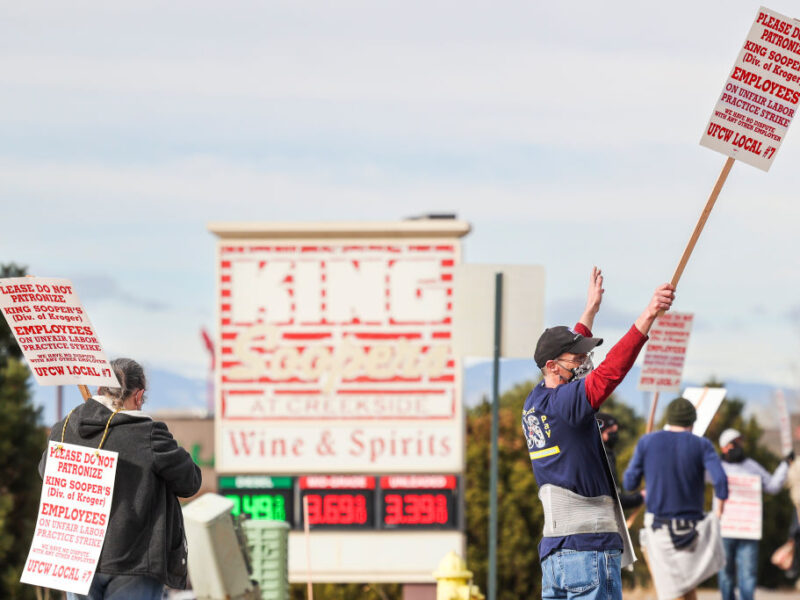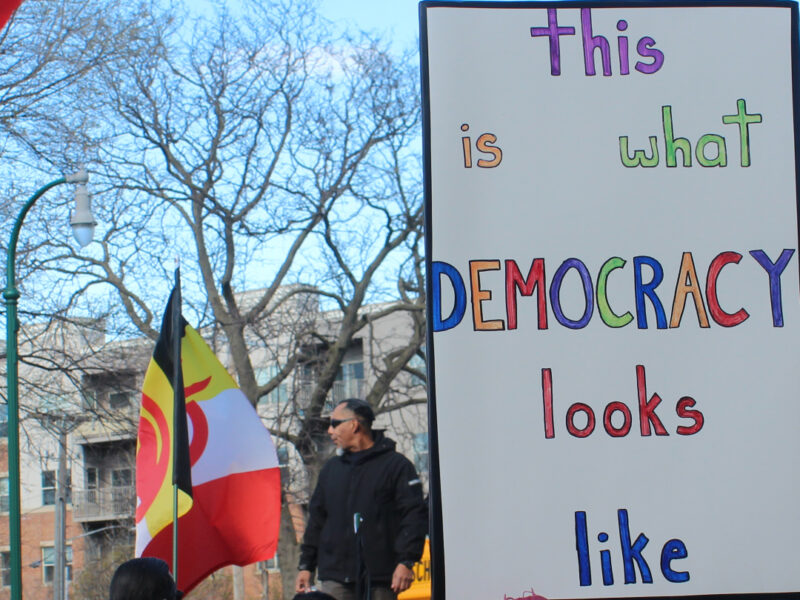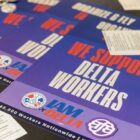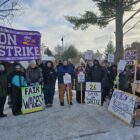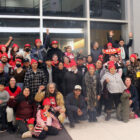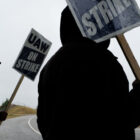The union says the labor relations system is in shambles, and low-wage employees are subject to severe mistreatment.
Minnesota
Why Delta Air Lines Workers Are Fighting for a Union
|
Workers are ramping up organizing efforts at the most profitable airline company on the planet.
Minnesota
Minnesota Healthcare Workers in Deer River Continue Historic Strike
|
Around 70 workers with SEIU Healthcare Minnesota & Iowa are staying strong on the picket lines against nonprofit Essentia Health.
Government
La lucha por los estándares laborales continúa en Minneapolis
|
La financiación para el co-cumplimiento de los estándares laborales ha sido aprobada, mientras que una propuesta del Concejo de Estándares Laborales está en juego.
Government
The Fight for Labor Standards Continues in Minneapolis
|
Funding for labor standards co-enforcement is approved as a Labor Standards Board proposal hangs in the balance.
International
Bosses Are Retaliating Against Workers for Showing Solidarity With Palestinians
|
Workers are losing their jobs and professional opportunities for expressing pro-Palestinian sentiment. Others are choosing to self-censor amid a climate of fear.
Minnesota
Wall Street Took Over a Vital Sign Language Service—And Started Union Busting
|
This article is a joint publication of Workday Magazine and In These Times. “Do no harm” is the guiding principle of American Sign Language (ASL) interpreters’ professional code of conduct. But when Joe Klug, 28, worked as a Video Relay Service (VRS) interpreter for a Twin Cities metro area office of Purple Communications, he says this principle was routinely violated. The VRS field, which allows Deaf and Hard of Hearing people to make phone calls by video interfacing with interpreters, is difficult and fast-paced work. While some calls are social, others can be serious: medical emergencies, job interviews, jargon-heavy discussions with lawyers or sensitive conversations with doctors.
Minnesota
“Everyone loses”: Report Finds that Minnesota Workers Lose Billions of Dollars Annually Due to Payroll Fraud
|
A new report estimates that approximately 10% of private sector workers were misclassified in 2019 in Minnesota and billions of dollars lost to fund public safety nets.
Co-Ops
Workers Win Union Election at Mississippi Market Co-op
|
Workers at the local organic food co-op who organized and won union representation are hoping to build a more democratic workplace.
International
The Call Is Out for Mass, Simultaneous Strikes in 4 Years
|
These labor leaders are organizing for 2028. Cooperation across unions and sectors—if carried out on a large scale—would be unprecedented in the 21st century United States.
Minnesota
“I Know My Worth”: What it Takes to Unionize the Service Industry
|
Despite the popularity of unions being at a record high, workers in the food service industry face an uphill battle when it comes to fighting for collective bargaining rights. Hospitality unions and workers are trying to change that.



